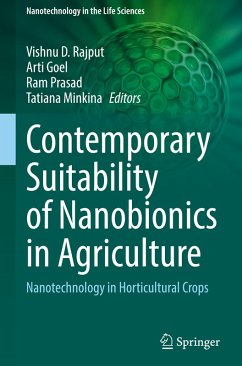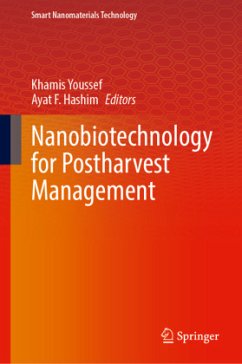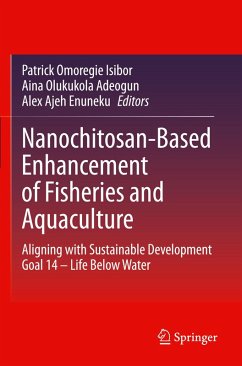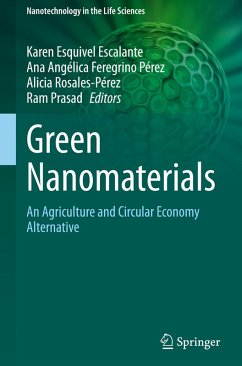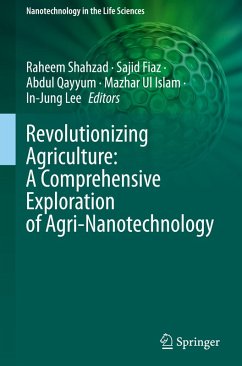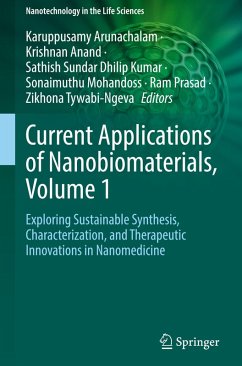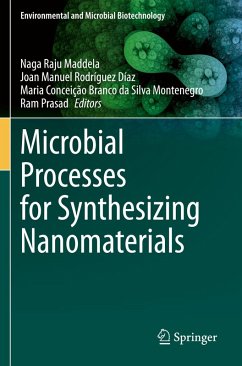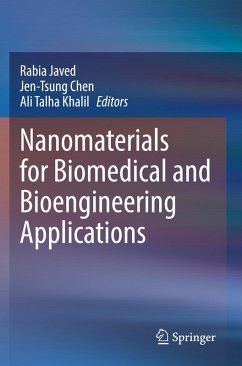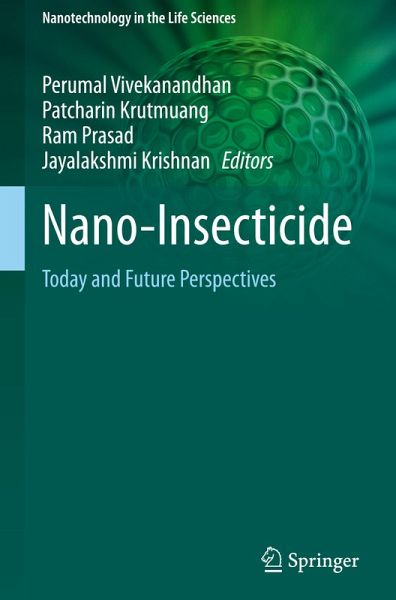
Nano-Insecticide
Today and Future Perspectives
Herausgegeben: Vivekanandhan, Perumal; Krutmuang, Patcharin; Prasad, Ram; Krishnan, Jayalakshmi

PAYBACK Punkte
68 °P sammeln!
In recent years, nanotechnology has emerged as a promising tool for combating insect pests in agriculture, public health, and urban environments. Nanomaterials offer unique properties which can be leveraged to develop targeted and environmentally sustainable pest control solutions. However, despite growing interest in this area, there remains a need for a comprehensive resource that synthesizes the latest research findings and practical applications of nanotechnology for insect pest control. Nano-Insecticide addresses this gap by providing a thorough overview of the diverse applications of nan...
In recent years, nanotechnology has emerged as a promising tool for combating insect pests in agriculture, public health, and urban environments. Nanomaterials offer unique properties which can be leveraged to develop targeted and environmentally sustainable pest control solutions. However, despite growing interest in this area, there remains a need for a comprehensive resource that synthesizes the latest research findings and practical applications of nanotechnology for insect pest control. Nano-Insecticide addresses this gap by providing a thorough overview of the diverse applications of nanotechnology in insect pest management.
The book covers a wide range of topics, including nanoparticles for insecticide delivery and release, nanostructured materials for pest monitoring and detection, nanobiotechnology approaches for pest-specific targeting, environmental implications, safety considerations and more. Case studies and practical applications from various agricultural and urban settings are also featured.
Each chapter is authored by leading experts in their respective fields, ensuring that the book reflects the latest advancements and perspectives in nanotechnology for insect pest control. This book serves as a valuable resource for researchers, practitioners, policymakers, and students interested in the intersection of nanotechnology and pest management. By providing a comprehensive overview of the current state-of-the-art and future directions in the field, Nano-Insecticide aims to stimulate further research and innovation in this critical area. It has the potential to significantly advance our understanding and application of novel pest management strategies.
The book covers a wide range of topics, including nanoparticles for insecticide delivery and release, nanostructured materials for pest monitoring and detection, nanobiotechnology approaches for pest-specific targeting, environmental implications, safety considerations and more. Case studies and practical applications from various agricultural and urban settings are also featured.
Each chapter is authored by leading experts in their respective fields, ensuring that the book reflects the latest advancements and perspectives in nanotechnology for insect pest control. This book serves as a valuable resource for researchers, practitioners, policymakers, and students interested in the intersection of nanotechnology and pest management. By providing a comprehensive overview of the current state-of-the-art and future directions in the field, Nano-Insecticide aims to stimulate further research and innovation in this critical area. It has the potential to significantly advance our understanding and application of novel pest management strategies.



